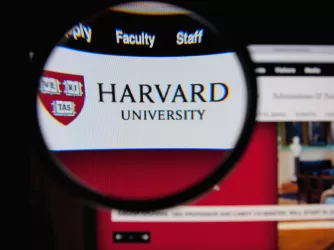Table of Contents
Why Wesleyan's speech policies earn a red light rating

As a student at Wesleyan University, I have to say that my initial read of our Student Handbook made it seem pretty reasonable. So why does it merit a harsh "Red Light" rating from FIRE? The policies in question deal with “discriminatory harassment” and grant students the “right to abstain from performing acts and the right to be protected against actions that may be harmful to the health or emotional stability of the individual or that degrade the individual or infringe upon his/her personal dignity.” It’s hard at first to understand why this policy should be changed, as it appears to be aimed at protecting students from harm and little else.
The devil, as is usual with speech codes, is in the details. Wesleyan’s definitions of “discriminatory harassment” and “harm” are, to borrow a phrase from First Amendment doctrine, “overbroad.” Discriminatory harassment, according to Wesleyan’s speech code, consists of “…any action or statement intended to insult, stigmatize, or degrade an individual or group…” based on a list of protected categories such as race and sex. The problem is that this definition includes both proscribable harassment and merely offensive speech. A student could prompt an investigation by the administration for relatively innocuous speech if someone reports their speech as discriminatory harassment.
Another rule in the handbook is similarly flawed. Section 7, which aims to protect students from “harm” and from comments that “degrade…[their] personal dignity” is also overbroad and vague. Similar to the discrimination policy, the description encompasses both extremely degrading actions, such as sexual assault, and smaller moments of alleged degradation, such as offensive speech from a controversial lecturer invited to speak on campus. Instead of merely defending students from actual discrimination and harm, Wesleyan’s policy simultaneously outlaws both heinous crimes and the freedom of speech promised by the university.
By comparison, the 1999 U.S. Supreme Court case Davis v. Monroe County Board of Education provides a solid, constitutional definition of discriminatory harassment that Wesleyan should adopt. The Court defined student-on-student discriminatory harassment as behavior that is “so severe, pervasive, and objectively offensive that it so undermines and detracts from the victim’s educational experience, that the victim-students are effectively denied equal access to an institution's resources and opportunities.” The Court also incorporated the “reasonable person” standard, by requiring that harassment be “objectively offensive” to a hypothetical person unrelated to the case. By rewriting their speech codes so that they are in line with the standard set by Davis, Wesleyan could ensure that its students are protected from discrimination without losing their freedom of speech.
In addition to Wesleyan’s definition of discriminatory harassment being overly broad, the policy stands in direct contradiction with another section of the Student Handbook, which states that students have the right to “[f]reedom of assembly, speech, belief, and the right of petition…” Wesleyan may be a private university, and therefore not legally obligated to protect speech by virtue of the First Amendment, but it is still contractually and morally accountable to its students through the commitments it made to them in its own rules and regulations.
On top of breaking its commitments to its students, Wesleyan may also be unintentionally “chilling” its students’ speech by incorrectly telling them that offensive statements are not protected speech. Speech is chilled when students censor their own opinions out of fear of breaking their school’s speech codes. Such chilling is all too likely to occur as long as these rules remain on the books, creating the possibility that they will be used against students who are exercising their freedom of speech.
It would not be the first time that overbroad speech codes were used against students: College Republicans at San Francisco State v. Reed is a great example of this problem. In 2007, the College Republicans club at San Francisco State University held an anti-terrorism rally in which they stomped on Hamas and Hezbollah flags, which (though they did not know this) include the Arabic word for God (“Allah”) as part of their design. Several students were offended by the display, so the club crossed out the word “Allah” on their homemade flags to address the problem. But within a few days, someone reported the College Republicans for allegedly violating the university’s civility policies. While the group was eventually found innocent after nearly two months of investigation, the College Republicans sued their university over its unconstitutional regulation, successfully proving that the speech code was unconstitutional. This was an important victory for freedom of speech that also demonstrates the ease with which policies that seem innocuous can still be abused, by putting students through rigorous and burdensome hearings simply for exercising their freedom of speech.
I’d like to think that Wesleyan would not force me or other students to undergo blatantly unreasonable investigations simply for minor affronts against their peers. But it’s not unreasonable to suspect that a student, guilty of no crime other than offending others, could be subject to an administrative investigation as a result of overbroad student handbook policies. Given this, is it not worthwhile to create new, fairer student policies, and eliminate the possibility of censorship altogether?
Henry Spiro is a rising senior at Wesleyan University.
Recent Articles
FIRE’s award-winning Newsdesk covers the free speech news you need to stay informed.

Revoking Harvard’s tax-exempt status will threaten all nonprofits

Grandpa’s advice for the new wave of American censors

FIRE POLL: Only 1/4 of Americans support deporting foreigners for pro-Palestinian views
